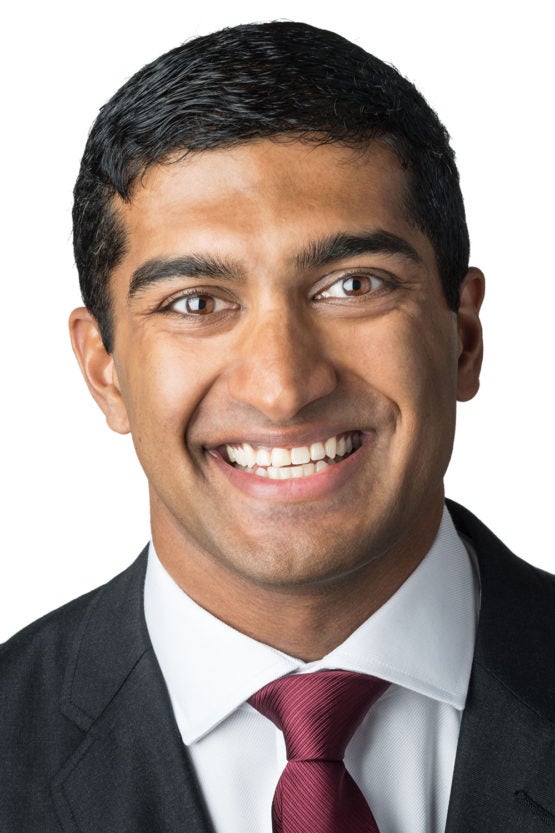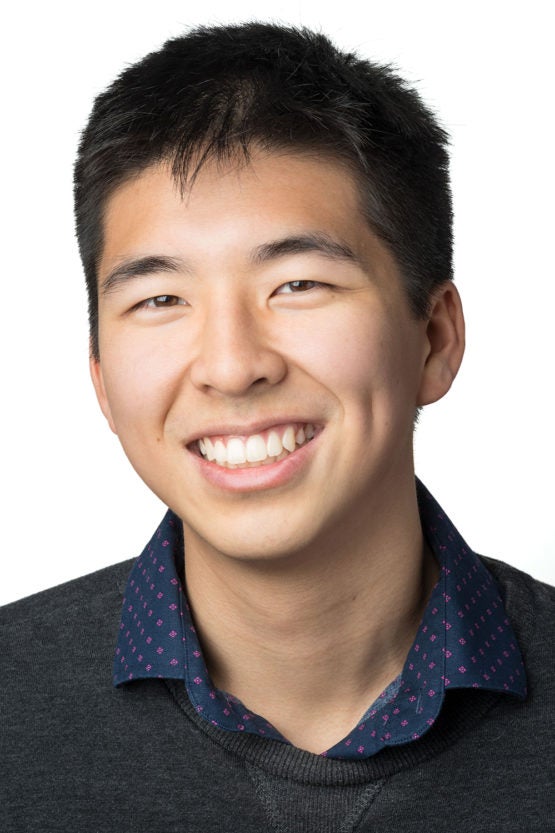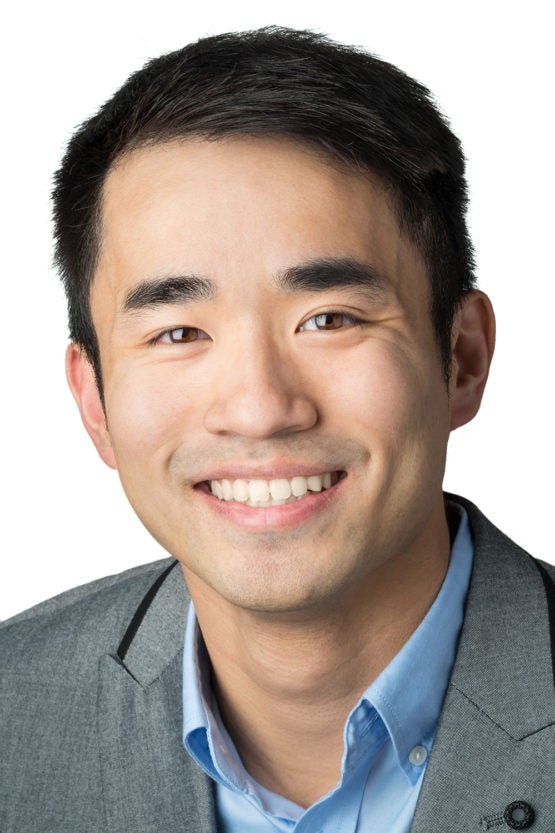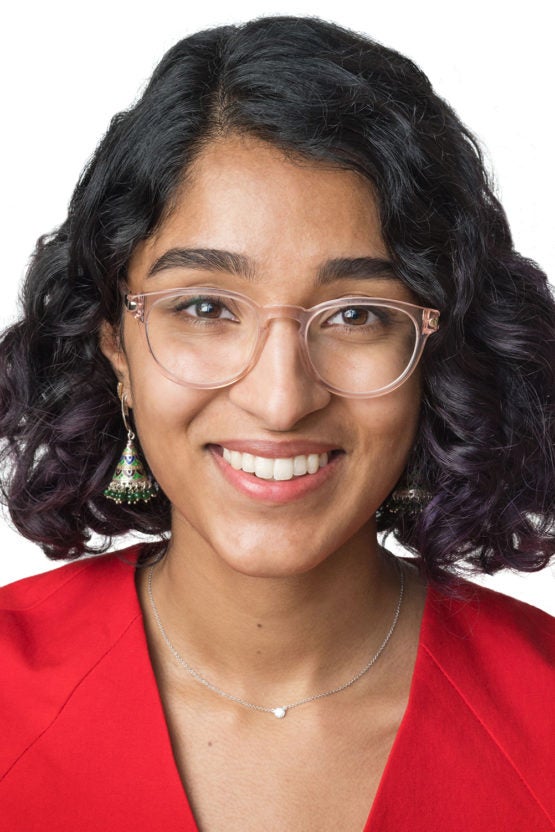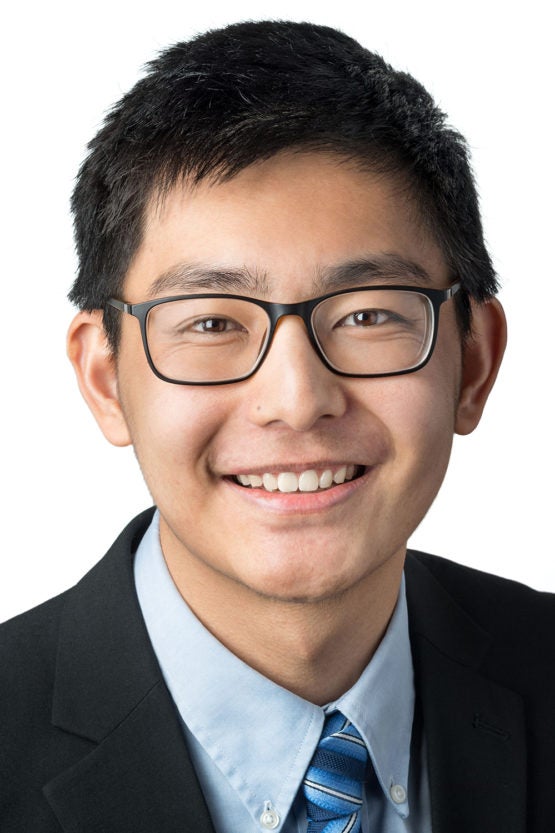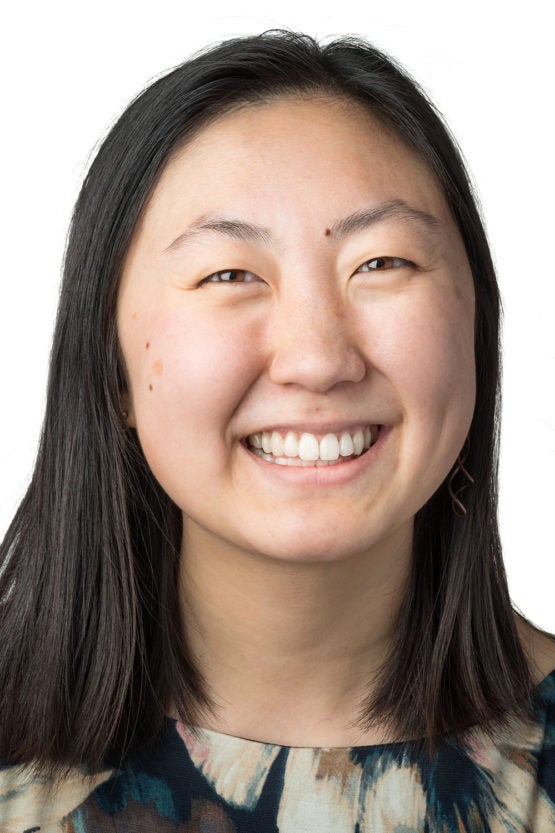Six Stanford affiliates named Paul and Daisy Soros Fellows
The Paul and Daisy Soros Fellowships for New Americans award provides support for immigrants, and the children of immigrants, to pursue graduate degrees at any U.S. university.
Six Stanford affiliates are among this year’s recipients of the Paul and Daisy Soros Fellowships for New Americans, including three recent alumni and three incoming graduate students.
The fellowship is awarded annually to 30 outstanding immigrants and children of immigrants who receive $90,000 for two years of graduate school at any U.S. university. This year’s PD Soros Fellows were selected from among 2,211 applicants – the program’s most competitive year to date.
The merit-based fellowship was established in 1997 by Hungarian immigrants and philanthropists Paul and Daisy Soros. Since then, the program has grown to a community of 655 scholars from 89 countries. PD Soros Fellows have pursued careers in medicine, science, law, policy, technology, business, government, nonprofits, the arts and academia, among other sectors.
Members of the 2020 cohort are all the children of immigrants, green card holders, naturalized citizens, Deferred Action for Childhood Arrival (DACA) recipients or visa holders who graduated from both high school and college in the United States.
“At a time when all forms of immigration are under attack, it’s more important than ever to be celebrating the achievements and contributions of immigrants and refugees from across the world,” said Craig Harwood, who directs the fellowship program. “Our country and universities are enriched by the ingenuity that comes from abroad. When we honor and invest in New Americans our nation is stronger – the Paul & Daisy Soros Fellows are a perfect demonstration of that.”
Six of the 2020 PD Soros Fellows have ties to Stanford.
Akhil Iyer graduated from Stanford in 2011 with a bachelor’s degree in international relations. The PD Soros Fellowship will support his work in a joint master’s program in public policy and business administration at Harvard University.
“I am really honored to receive this fellowship and to be able to continue exploring issues surrounding national security, many of which I first learned about as an undergrad on the Farm,” Iyer said.
Iyer was born and raised in Buffalo, New York. His parents immigrated to the United States from India. As a youth, he developed a strong interest in military service, which he brought with him to Stanford in 2007. As an undergraduate, he took off-campus ROTC courses and advocated for the program’s return to Stanford. On the academic front, Iyer studied national security challenges through Stanford’s Center for International Security and Cooperation, as well as the Hoover Institution.
After graduation, Iyer became a Marine Corps infantry officer and special operations team commander. As a graduate student at Harvard, Iyer is exploring issues related to technology, innovation and civil-military relations.
Jason Ku Wang graduated from Stanford in 2018 with a bachelor’s degree in mathematical and computational science. He is now pursuing an MD in the Harvard-MIT Program in Health Sciences and Technology with support from the PD Soros Fellowship.
Wang is the son of immigrants from China’s Hubei Province and spent much of his childhood in immigrant communities. He was born in Memphis, Tennessee, and also lived in Chicago, St. Louis and Wuhan, China, before settling in Los Angeles. Wang’s interest in medicine comes from his father, who is a physician. As an undergraduate at Stanford, Wang conducted research under faculty members Ron Dror and Jonathan Chen, where he explored problems in computational structural biology and data-driven clinical decision-making. He co-founded Health++, a hackathon that convenes engineering, design, business and healthcare students and professionals to address unmet clinical challenges, and was a co-organizer of CS 522: Seminar in Artificial Intelligence in Healthcare. He is the author of numerous scholarly publications and the recipient of the Stanford Deans’ Award for Academic Achievement.
After completing his undergraduate studies, Wang earned a master’s degree in global affairs from Tsinghua University in Beijing, which was supported by a Schwarzman Scholarship. In medical school, he will continue to explore how computational advancements can democratize access to high-quality healthcare.
“I can’t thank my mentors, friends and family enough for their continual love and support,” Wang said. “I’m most excited because the fellowship highlights the achievements and narratives of New Americans at a time when the political climate constantly calls into question the value of immigrants.”
Sherman Leung earned a bachelor’s degree in computer science and a master’s degree in management science and engineering from Stanford in 2016. The PD Soros Fellowship will support his pursuit of a medical degree at the Icahn School of Medicine at Mount Sinai in New York.
“I feel incredibly honored to be part of this diverse cohort and am so thankful to my many mentors, professors and friends from the Stanford community,” Leung said. “I attribute so much of my current trajectory and career aspirations to my interdisciplinary experiences at Stanford.”
Leung’s parents immigrated to the United States from Hong Kong. His father, a biochemist-turned-software engineer, and his mother, a journalist and educator, encouraged Leung to think in interdisciplinary ways. In high school, this led him to conduct research that applied music theory to organic chemistry and bio-computational approaches to vaccine design.
At Stanford, Leung learned about artificial intelligence, which led him to shift his academic focus to technology. He conducted research on machine learning and social gamification with former PD Soros Fellow Fei-Fei Li, the Sequoia Capital Professor and co-director of HAI, the Stanford Institute for Human-Centered Artificial Intelligence, and Michael Bernstein, associate professor of computer science. He also co-founded SHIFT, a student group that brings together students, developers and entrepreneurs to create healthcare innovations.
Leung has worked for healthcare startups and a venture capital firm, and launched a national care coordination platform at PatientPing, which garnered him a spot on MedTech Boston’s list of “40 Under 40 Healthcare Innovators” in 2018. He has also worked with immigrant and indigent patient populations. Leung hopes to continue to leverage technology to support underserved patient populations and increase the efficiency of healthcare delivery.
Pooja Reddy will graduate from the Massachusetts Institute of Technology this spring with a bachelor’s degree in materials science and engineering. The PD Soros Fellowship will support her doctoral studies in the same field at Stanford starting this fall.
Reddy is a native of Boston. She is the daughter of immigrants from India, where she spent a portion of her childhood before returning to the United States for high school. As an undergraduate at MIT, Reddy has supported other students as a teaching assistant and peer-mentor. Reddy has also pursued her love of the arts through metal-smithing and running the MIT Art Club.
Through her work in the Laboratory of Nanomagnetism and Spin Dynamics, Reddy developed a passion for solid-state physics and device technology. Her goal is to use her professional training to create new materials and devices for information technology and help advance the nanoelectronics industry to enable new paradigms of information technology and scientific progress.
Eric Sun is an undergraduate at Harvard, where he studies chemistry and physics. He will join Stanford in the fall to pursue a PhD in biomedical informatics with support from the PD Soros Fellowship.
Sun was born and raised in Pueblo, Colorado, to parents who immigrated from Qingdao, China. During his first year of college, he worked at Harvard Medical School to help characterize proteins potentially involved in mitochondrial aging. He also studied aging using mathematical and physical modeling in Harvard’s Applied Math Lab, where he designed protocols for optimally repairing systems that undergo aging. He is co-president of the Harvard Undergraduate Bioethics Society and has worked with researchers at the Radcliffe Institute for Advanced Study and the National Institute on Aging.
In addition to being named a PD Soros Fellow, Sun will join Stanford as a Knight-Hennessy Scholar. Through his PhD program in biomedical informatics, he intends to study the biology of aging and hopes to develop new tools for explaining the mechanisms behind complex biological phenomena.
Connie Liu earned a bachelor’s degree in mechanical engineering from the Massachusetts Institute of Technology. She will join Stanford Graduate School of Business in the fall to pursue an MBA with support from the PD Soros Fellowship.
Liu was born and raised in San Diego, where her parents settled after immigrating from China. As an undergraduate, her work focused on developing assistive technologies for people with disabilities. She worked on developing projects like FingerReader, which is a camera mounted on a ring to help blind people read on-the-go, and PenPal, a tremor-canceling pen for people with Parkinson’s disease.
After completing her undergraduate studies, Liu worked as a high school teacher in San Mateo, where she taught courses on smart wearable technologies, design engineering for social good and robotics. Liu is also the founder of Project Invent, a national nonprofit that teaches high school students how to invent technologies. The program is available in 30 schools in 14 states across the country. Her work as a founder has garnered her national recognition and a spot on the “Forbes 30 Under 30” list.

